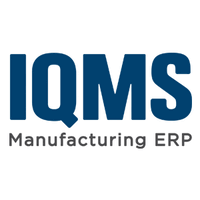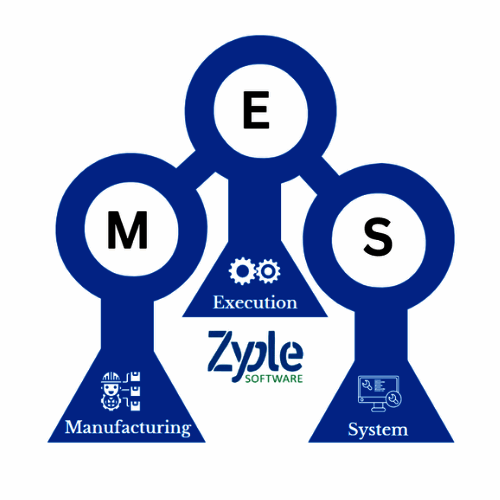What Is Manufacturing Execution System?
A production Execution System, usually known as MES, is a software solution that improves the efficiency and precision of production processes. It acts as a single hub for collecting and evaluating data from multiple phases of production, allowing firms to make more informed decisions and optimize their operations. At its foundation, a MES gives managers real-time visibility into the production floor, allowing them to track orders, check inventory levels, and schedule tasks.
This allows them to recognize and address any potential difficulties, such as production delays or equipment malfunctions, in a timely manner. Furthermore, a MES provides functions such as data collecting, quality control, and workforce management, giving a complete picture of the entire manufacturing process. This enables producers to identify areas for improvement, streamline procedures, and, ultimately, boost production.
Furthermore, a MES can be connected with other systems like Enterprise Resource Planning (ERP) and Supply Chain Management (SCM) to provide a continuous flow of information across the organization. This not only enhances communication and collaboration across departments, but it also results in better decision-making. When selecting a MES, various considerations should be considered, including scalability, ease of use, and compatibility with current systems. It is also critical to evaluate the vendor's degree of support and training to guarantee that the system is successfully implemented and used.
What Are The Recent Trends In Manufacturing Execution System?
The manufacturing industry has changed and advanced significantly in recent years as a result of the advent of new technology and processes. As a result, Manufacturing Execution Systems (MES) have evolved to keep pace with these changes and meet the changing needs of enterprises.
In this buyer's guide, we will cover the most recent MES developments that every potential buyer should be aware of.
1. Integration Of Industry 4.0: The Fourth Industrial Revolution, or Industry 4.0, is about connected and intelligent systems that employ data, automation, and modern technology to transform production processes. This tendency has had a significant impact on the development of MES, which are now designed to work seamlessly with other smart manufacturing technologies like as the Internet of Things (IoT), Artificial Intelligence (AI), and Cloud Computing. This interface enables real-time data sharing and analysis, which improves visibility, efficiency, and decision-making.
2. Cloud-Based Solutions: Traditional MES required on-premise installation and maintenance, which made it expensive and time-consuming for enterprises. However, with the rise of cloud computing, MES providers increasingly provide cloud-based solutions. This enables easier and faster deployment, lower maintenance costs, and increased scalability. Cloud-based MES also provides remote access, which is ideal for firms with numerous sites or a remote staff.
3. Focus On Data Analytics And Business Intelligence: Data is the new oil, and MES is utilizing this important resource. With powerful data analytics and business intelligence capabilities, MES can now collect, store, and analyze vast amounts of data from a variety of sources. This data can provide useful insights into production processes, identify bottlenecks, and assist firms in making data-driven decisions that improve efficiency, productivity, and quality.
4. Mobile Access: With the increased usage of smartphones and tablets in the workplace, MES suppliers are increasingly introducing mobile apps that allow users to access MES data and functionality while on the go. This enables remote monitoring and management of industrial processes, real-time data tracking, and rapid decision-making. Mobile access also facilitates greater communication and collaboration across various teams, resulting in increased efficiency and productivity.
5. Move Towards Paperless Manufacturing: Traditional paper-based manufacturing processes are inefficient, error-prone, and unsustainable. MES currently provides paperless solutions, in which data is recorded and stored electronically, decreasing reliance on physical documents. This not only improves efficiency and accuracy, but it also promotes sustainability and lowers operational expenses.
Benefits Of Using Manufacturing Execution System
Manufacturing Execution System (MES) is a software solution that enables manufacturers to improve their production processes and manage their operations more efficiently. It offers a centralized platform for gathering, evaluating, and reporting real-time data from diverse production activities, allowing organizations to make more informed decisions and streamline their operations.
Here are the primary benefits of adopting MES in your manufacturing organization and why it's a must-have tool for modern manufacturers.
1. Improved Production Efficiency: One of the key advantages of employing MES is increased production efficiency. By automating and digitizing different manual operations, MES removes possible errors and bottlenecks, resulting in faster and more accurate output. With real-time visibility into production data, firms can more easily identify and address issues, streamline operations, and maintain optimal productivity.
2. Improved Quality Control: MES enables enterprises to maintain high quality standards by offering total visibility into the manufacturing process. It monitors and gathers data at every level, allowing organizations to discover and address quality issues right away. This not only reduces the danger of product faults, but also allows organizations to meet regulatory compliance standards.
3. Cost Savings: MES may considerably lower manufacturing costs by reducing waste, improving inventory levels, and maximizing resource utilization. Businesses can enhance their bottom line and market competitiveness by optimizing production processes, lowering changeover times, and avoiding material waste.
4. Real-Time Data Analysis: MES enables firms to access and analyze real-time production data, providing significant insights. This information may be used to track and measure key performance indicators, spot trends, and make data-driven decisions to enhance operations, lower costs, and boost overall efficiency.
5. Increased Scalability: MES is a scalable system that can adapt to the changing requirements of a developing manufacturing company. As your organization grows, MES can readily handle new production lines, processes, and products, assuring ongoing efficiency and productivity.
6. Seamless Integration: MES communicates with other business systems, such as Enterprise Resource Planning (ERP), to provide a comprehensive perspective of the manufacturing process. This allows for better coordination between divisions, improved communication and collaboration, and streamlined overall processes.
Important Factors To Consider While Purchasing Manufacturing Execution System?
When it comes to purchasing a Manufacturing Execution System (MES), there are several significant considerations. MES software is an essential component of any contemporary manufacturing organization since it optimizes production processes, tracks performance, and increases overall efficiency. As a result, it is critical to select the appropriate MES system that suits your organization's specific demands and objectives.
To assist you make an informed selection, here are some important considerations to consider when selecting a Manufacturing Execution System.
1. Scalability: The first and most important consideration is the scalability of the MES software. As your firm expands, so will your production needs. It is critical to select a MES system that can support future growth and respond to changing production requirements. This will spare you the headache and cost of obtaining a new system when your company wants to expand.
2. Integration Capabilities: In order to optimize the flow of information throughout your organization, your MES system must interact with a variety of other systems, including ERP, PLCs, and shop floor devices. As a result, it is critical to verify that the MES software you choose has strong integration capabilities. It should be able to interface easily with other systems and devices, enabling real-time data sharing and analysis.
3. Customization And Flexibility: Each manufacturing plant has distinct operations, processes, and workflows. As a result, it is critical to choose a MES system that provides a high degree of customization and flexibility to fit your individual requirements. This allows you to customize the system to match your specific processes and make it easier to use for your team.
4. User-Friendly Interface: The user interface is another important thing to consider while choosing a MES system. It should be simple and easy for your team to utilize. This will help to avoid productivity losses and enable a smooth transition to the new system.
5. Reporting And Analytics: One of the primary functions of a MES system is the collection, analysis, and reporting of production data. As a result, it is critical to choose a system that provides complete reporting and analytics capabilities. This will allow you to obtain useful insights into your manufacturing processes, pinpoint areas for improvement, and make data-driven decisions.
6. Support And Maintenance: An MES system, like any other software, needs to be maintained and updated on a regular basis. When choosing a MES, evaluate the level of support and maintenance provided by the provider. A dependable vendor should offer ongoing technical support, training, and system updates to maintain smooth operations and peak performance.
7. Cost: Finally, examine the cost of the MES system. While it may be tempting to choose a low-cost solution, consider the long-term benefits and ROI of investing in a reliable and efficient MES system. A good MES system can help to cut manufacturing costs, increase productivity, and drive overall business growth.
What Are The Key Features To Look For In Manufacturing Execution System?
When looking for a Manufacturing Execution System (MES), there are several critical aspects that are required to maximize efficiency, productivity, and quality in the manufacturing process.
1. Real-Time Data Collection And Analytics: The ability to collect and analyse real-time data from a variety of sources, including machines, operators, and systems, is critical. This data provides vital insights into the manufacturing process, enabling speedy decision-making and the identification of bottlenecks.
2. Production Tracking And Scheduling: A comprehensive MES should be able to track production in real time and efficiently schedule production jobs. This capability allows firms to obtain visibility into their manufacturing processes and make more educated resource allocation decisions.
3. Inventory Management: An MES should be able to track inventory levels and material requirements in real time. This includes tracking raw supplies, work-in-progress, and finished goods to ensure effective usage and minimize the risk of stock-outs.
4. Quality Control And Traceability: Quality control is an important aspect of manufacturing, and a reliable MES should have capabilities that assure goods fulfill quality requirements. Additionally, traceability capabilities allow producers to track and trace items throughout the manufacturing process, assuring regulatory compliance and permitting recalls if necessary.
5. Integration With Other Systems: A modern MES should be able to work with other systems like Enterprise Resource Planning (ERP), Supply Chain Management (SCM), and Customer Relationship Management (CRM). This enables smooth information flow between departments and systems, reducing data silos and increasing overall efficiency.
6. Mobility And Cloud Capabilities: With the advent of remote work and the requirement for flexibility, a MES with mobile and cloud capabilities allows manufacturers to access production information at any time and from any location. This enables improved production management and faster decision-making, even when working remotely.
7. Scalability And Customization: As business requirements change, a MES should be able to expand with the firm. Furthermore, software modification allows you to tailor the MES to specific production processes, increasing overall efficiency and productivity.
Why Do Businesses Need Manufacturing Execution System?
A Manufacturing Execution System (MES) is a software solution for optimizing and managing production operations in a manufacturing facility. It serves as a central center for communication, data collection, and analysis, allowing businesses to make more informed decisions and increase operational efficiency. There are numerous compelling reasons why firms require a MES.
To begin, a MES gives managers with real-time visibility into the production process, allowing them to follow order progress, detect bottlenecks, and make quick adjustments to avoid delays. This kind of information is critical for managing tight production deadlines and assuring on-time delivery. Second, by automating and streamlining procedures, a MES decreases the likelihood of human mistake and eliminates the need for manual data entry.
This not only improves accuracy but also reduces junk and waste, resulting in cost savings for enterprises. Furthermore, a MES connects data from several departments, including production, inventory, and quality control, to provide a comprehensive perspective of operations. This improves team coordination and communication while also allowing for more data-driven decision making.
An MES not only helps organizations improve manufacturing processes, but it also assists them in meeting regulatory and quality standards. It allows businesses to track and trace raw materials, components, and completed products, assuring complete compliance and making recall management easier if necessary. Finally, investing in a MES provides firms with the tools and capabilities needed to continuously enhance and optimize their operations.
With performance data and analytics at their fingertips, they can find areas for improvement, introduce new strategies, and ultimately increase productivity and profitability. Overall, a Manufacturing Execution System is critical for companies seeking to remain competitive in today's dynamic and fast-paced manufacturing industry. It streamlines operations, lowers costs, and allows firms to meet consumer expectations more efficiently, making it an excellent investment for any manufacturing company.
How Much Time Is Required To Implement Manufacturing Execution System?
The installation time for a Manufacturing Execution System (MES) varies according to the system's complexity, the size of the organization, and the level of customization required. On average, it takes between six months and two years to completely install a MES. The first step in the implementation process is to undertake a thorough study of the existing manufacturing processes and identify any opportunities for improvement.
This can take anywhere from a few weeks to many months, depending on the organization's size and complexity. Once the study is complete, the following step is to build and configure the MES to fit the organization's specific requirements. This can take anywhere from a few months to a year, depending on the level of customization necessary and the available resources.
After the design and configuration phases are completed, the MES must be tested and validated to ensure that it satisfies the organization's needs. This can take several weeks or months, depending on the system's complexity and the amount of tests required. After the MES has been tested and validated, the final stage is to implement it across all departments and teach staff on how to utilize it efficiently.
This can take many weeks or months, depending on the size of the company and the availability of training resources. It is vital to highlight that appropriate planning, resources, and MES supplier support can help to accelerate the installation process. It is critical to establish a project timeframe and assign adequate resources for its implementation.
What Is The Level Of Customization Available In Manufacturing Execution System?
When it comes to customization, Manufacturing Execution Systems (MES) do not have a one-size-fits-all solution. Each system provides varying levels of customisation, allowing businesses to adjust the software to their own requirements and operations. As a buyer, you should understand the extent of customization possible in a MES and how it can affect your organization. First and foremost, remember that no two MES systems are identical.
Some have a great level of customisation, allowing for comprehensive changes and customizations, while others have little customization choices. The level of customisation available will vary depending on the software supplier, the system's features, and the intricacy of your manufacturing processes. In general, MES systems provide varied amounts of flexibility in the areas of user interface, processes and templates, reporting, and system interaction.
A completely customizable MES will allow you to tailor the user interface to your specific requirements and tastes. This includes adding and removing features, modifying the layout, and creating custom dashboards. Workflows and templates are the set of stages and procedures used to execute a certain task within the system. Some MES systems allow you to customize workflows and templates to fit your company's specific procedures.
This can increase efficiency and ensure that the system is customized to your organization's requirements. Reporting capabilities are another essential consideration when it comes to customization. A sophisticated MES will allow you to generate unique reports and analytics based on your specific data and KPIs. This enables for more in-depth study of your manufacturing processes as well as the identification of improvement opportunities.
Finally, MES customisation requires integration with other systems. A fully adaptable system will be able to interact with other software and systems utilized in your company, such as ERP or PLM. This guarantees that data is transmitted between systems in a smooth manner, offering a complete picture of your production operations.
Which Industries Can Benefit The Most From Manufacturing Execution System?
The Manufacturing Execution System (MES) has become an essential tool for many industries, delivering real-time insights and better production efficiency. This software solution is intended to bridge the gap between the shop floor and management by providing a detailed overview of the production line's activity. But which industries would gain the most from a MES?
Let's investigate.
1. Manufacturing Industry: The manufacturing industry, from which MES originated, is the logical choice for deploying it. MES gives manufacturers reliable and timely data on production operations, inventory management, quality control, and equipment monitoring. Manufacturers can use MES to improve product quality, minimize waste, and expand manufacturing capacity.
2. Automotive Industry: The automotive industry requires precision and efficiency, making it a good choice for MES implementation. An MES can monitor and evaluate the entire manufacturing process, from raw materials to final assembly, assuring product quality and uniformity. This industry can also benefit from MES's ability to interact with other systems, such as ERP and SCM, resulting in a more efficient supply chain.
3. Food And Beverage Business: The food and beverage business has stringent laws and standards to follow, making MES an invaluable tool for ensuring compliance. MES enables food and beverage firms to track and trace materials, control recipes, and ensure product safety and quality. Furthermore, MES can monitor production lines in real time, recognizing and resolving errors as they arise.
4. Pharmaceutical Sector: Quality control and regulatory compliance are essential in the pharmaceutical sector. MES can help maintain tight quality control and documentation while assuring compliance with requirements such as the FDA's 21 CFR Part 11. Furthermore, with MES, pharmaceutical companies may keep track of their products from raw ingredients to finished product.
5. Chemical Business: The chemical business works with volatile and toxic products, therefore precise and accurate tracking is important. MES gives chemical industries real-time data on inventory, batch processes, and quality control. It also has extensive reporting options for tracking materials, facilitating audits, and maintaining compliance.
Conclusion
To summarize, purchasing a robust and effective Manufacturing Execution System (MES) is a strategic decision for any firm wanting to optimize production processes and improve overall efficiency. With the correct MES, businesses can obtain real-time visibility into their processes, improve quality control, cut expenses, and ultimately increase profitability.
To make an informed purchase, buyers should first evaluate their individual demands and requirements, such as firm size, industry, and manufacturing processes. It is also important to examine the MES's scalability and adaptability, as well as its compatibility with existing systems. During the evaluation phase, purchasers should thoroughly analyze each MES's features and functions to ensure that it meets their present and future requirements.
Furthermore, it is critical to evaluate the usability and training/support options provided by potential MES providers. Buyers should also assess the cost-effectiveness of each MES option, including both startup and continuing maintenance expenditures. It is also critical to ask about any additional charges for customization, upgrades, or support services.
The MES provider's reputation and track record are also important considerations. Buyers can assess the trustworthiness and quality of their services by looking into their previous projects, client testimonies, and industry reputation. By carefully examining these aspects, buyers can choose a MES that corresponds with their objectives and can create considerable improvements in their manufacturing processes. With the correct MES in place, businesses can improve their competitiveness, increase productivity, and achieve long-term success in the ever-changing manufacturing industry.






















